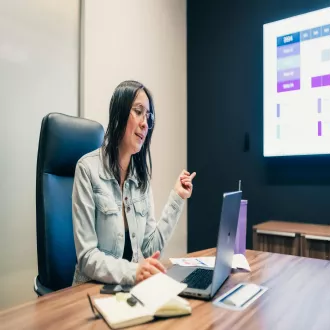Transcription Practical Exercises for Improving Listening
Keeping a communication diary to analyze the speaking/listening ratio.
A practical and revealing exercise to improve listening is to keep a communication journal.
This tool consists of recording and reflecting on our daily interactions, paying special attention to the proportion of time we spend talking versus listening.
Several studies show that listening more than talking is a key factor in relationship success; for example, research found that people who listened more than 60% of the time on a first date were much more successful.
By analyzing this diary from time to time, we can identify patterns; such as "in this conversation I talked too much and it didn't go well"; and become aware of our habits.
This allows us to consciously adjust our behavior to become more balanced and effective listeners.
Practice asking questions when meeting new people
Another very effective exercise is to intentionally adopt the role of interviewer each time we meet a new person.
Instead of focusing on talking about yourself, the goal is to spend most of the conversation asking questions and listening carefully to the answers.
We need to give the other person time to tell us who they are, what they like and what they think, without rushing and without interruptions.
This deliberate practice forces us to implement and strengthen several skills at once: the formulation of open questions, concentration and, above all, the ability to pay genuine attention to others.
It is an active training to shift the focus away from ourselves and onto the speaker.
Practicing not interrupting
For those who tend to interrupt, often out of the excitement of sharing an idea, practicing not interrupting is a critical exercise.
The next time you feel the urge to intervene while someone else is speaking, resist that urge.
If the idea is important, jot it down briefly so you don't forget it and immediately return your attention to the speaker.
The exercise consists of letting the other person completely finish his or her line of thought.
To take it a step further, before offering your own opinion, you can even pause and ask, "Are you finished or is there anything else you'd like to add?"
This simple gesture is not only a powerful show of respect, but it also trains us
practical exercises for improving listening




